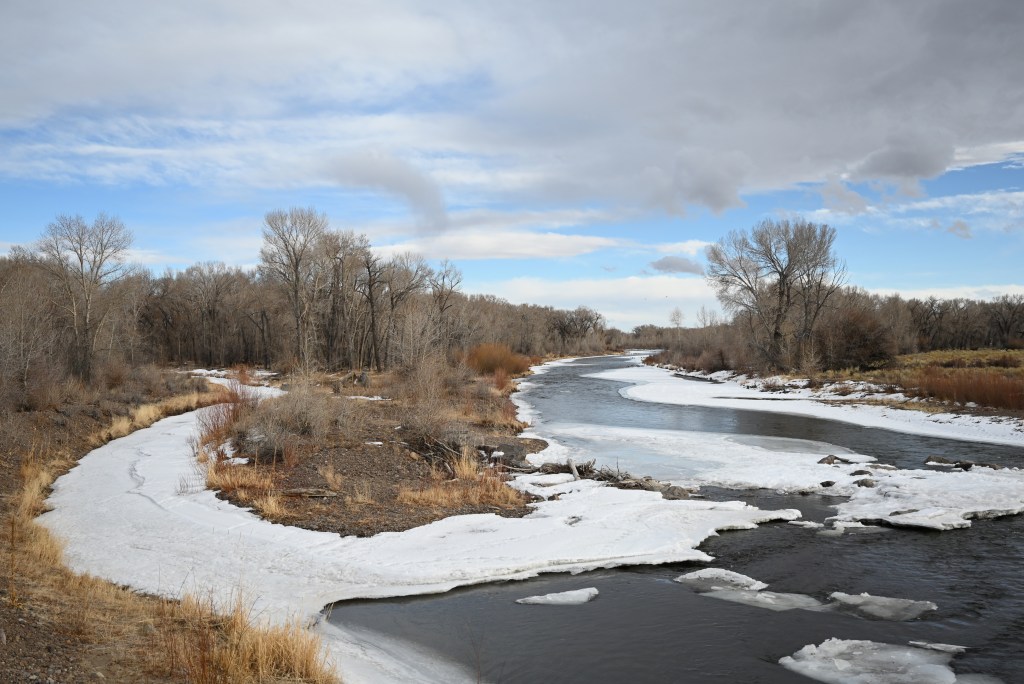
Illegal grazing destroying public lands
Last Updated on August 21, 2023 by Admin
[ad_1]

A veteran employee of the Bureau of Land Management in the San Luis Valley filed a whistleblower complaint Monday, saying her bosses are failing to enforce livestock grazing rules on public lands and jeopardizing the ecosystem along the Rio Grande River.
Melissa Shawcroft, who has been a BLM rangeland management specialist since 1992, is facing a two-week unpaid suspension after her supervisor decided to discipline her over discourteous emails and a failure to follow rules. Shawcroft is arguing that the discipline is retaliation for her insistence that the Bureau take action to stop area ranchers from trespassing by allowing their livestock to graze on BLM property without permits.
The illegal grazing has gone unchecked for years on the nearly 250,000 acres she manages and her constant pleas for enforcement, which must be authorized by her supervisors, have gone unheeded, she said. Shawcroft has documented damage to the land and riverbanks during inspections, including with photographs, and has heard repeated complaints from ranchers who pay to use BLM land.
“I knew it was uncalled for because I’ve been speaking up about the trespasses that have been going on lately and it’s not getting taken care of,” Shawcroft told The Denver Post. “I’m sick and tired of them telling me it’s my job to solve the problem when I don’t have the authority to do it. I jabbed at them and they fired back.”
Efforts to reach Bureau of Land Management officials Monday morning about the whistleblower complaint were unsuccessful.
The Bureau has the power to impound livestock or levy fines, but managers are timid because they fear another armed standoff similar to the one led by the Bundy family in 2014 in Oregon, Shawcroft said. In that case, Cliven Bundy, his family and an armed militia organized a standoff with federal agents who had come to round up the rancher’s cows that were illegally grazing on federal land.
Shawcroft said her supervisors are more concerned with promotions than enforcing the law, and they fear another armed standoff would jeopardize their federal careers.
“They think by keeping it quiet and not doing anything we can keep it quiet and under the table,” Shawcroft said. “No one is really addressing it because they’re all just thinking about themselves. They come right out and tell me we don’t want another Bundy situation.”
Under federal law, livestock are allowed to graze on Bureau of Land Management when a rancher holds a permit authorizing the land use. Permits are passed down through families and rarely become available for purchase.
The permits determine how many cattle, sheep or horses a rancher can place on federal land and which months the animals are allowed to graze. Those rules protect the land from overgrazing and give grass, brush and water time to recover throughout the year.
Shawcroft manages rangeland along the Rio Grande River where property on the east side is private and the Bureau owns the land on the west side of the river. Cows and horses are crossing the river from private land to the federally-owned Rio Grande Natural Area, she said.
The area is home to endangered and threatened species, including the southwestern willow fly-catcher and the western yellow-billed cuckoo. The Rio Grande River river provides water to approximately six million people in the United States and Mexico, according to the Rio Grande International Study Center, and the World Wildlife Federation lists it as a top 10 endangered river in the world.
The livestock is fouling the water. And the animals are eating grass and young willow trees down to the ground along the banks.
“It’s almost like pavement,” Shawcroft said. “That’s what happens when you graze from spring into the summer and into the fall.”
Area ranchers who pay for the permits are complaining that law-breakers are ruining the land for their livestock. It’s such a problem that “chronic livestock trespass” was on the June agenda for the BLM’s Rocky Mountain Resource Advisory Council meeting.
At that meeting, Dario Archuleta, the acting field manager for the BLM’s San Luis Valley field office said there is a “fine-tuned administrative process they believe will be vastly more effective than the criminal approach,” according to minutes from the meeting.
The San Luis Valley office also is training staff on how to properly document trespassers so cases will hold up in court, Archuleta said. But he told the meeting’s attendees that the process for impounding livestock is lengthy and complicated and that courts have been lenient on violators.
Shawcroft is represented in her complaint by Public Employees for Environmental Responsibility, a non-profit that works with public employees who want to point out government wrongdoing. There is no timeline for when a decision must be made on her complaint about the discipline, said Jeff Ruch, PEER’s Pacific director. She will continue working while the complaint is pending.
The Bureau of Land Management named Shawcroft its range management specialist of the year in 2012 and she’s only had one other disciplinary action taken in her 31-year career, Ruch said. A two-week, unpaid suspension is a heavy-handed punishment for sending emails to bosses about environmental destruction, he said.
“She doesn’t mince words and apparently some of her male supervisors took offense,” Ruch said. “The idea that you’re being hit with a heavy sanction when you use words like ‘gumption’ in an email strikes me as an overreaction.”
Rather than punish a vocal employee who cares about the environment, Bureau of Land Management supervisors need to protect the land, Ruch said.
“Grazing trespass is a big problem and we’ve been raising issues about BLM lands for quite some time,” he said. “Protecting the land and other resources from being stolen is a basic government function and it’s not being done here.”
Get more Colorado news by signing up for our Mile High Roundup email newsletter.
[ad_2]
Source link




